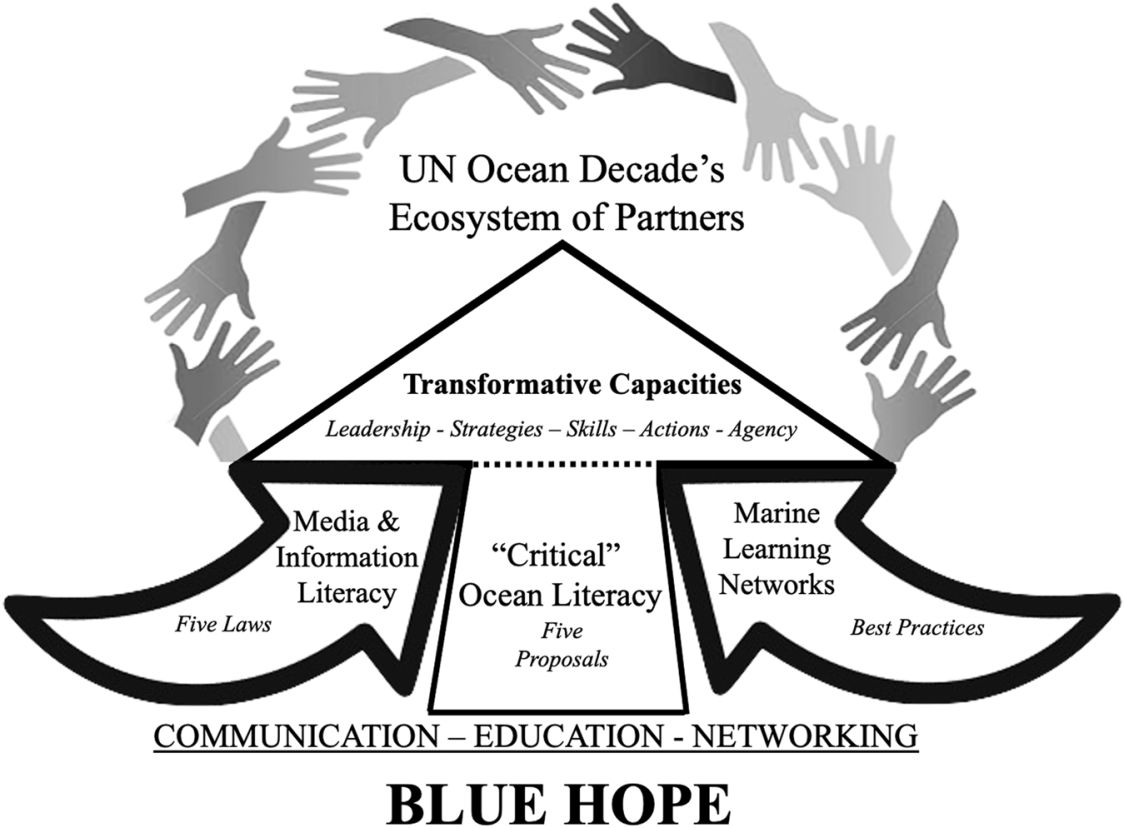The United Nations’ Ocean Decade calls for co-designing transformative science, ocean networks, and learning strategies to address ocean health decline and deep-blue social divides in ocean governance. Yet the transformative capacity to advance ocean sustainability pathways shared by the UN Ocean Decade ecosystem of partners is still under-realized in the early stages of this global campaign. A new study led by Leopoldo Gerhardinger and other researchers with ERC Tradition project, has just been published in npj Ocean Sustainability, exploring the conceptual and institutional implications of the combined use of marine learning networks (MLNs) and media and information ocean literacy (MIOL) approaches to strengthen capacities for ocean governance systems’ transformation (leadership, strategies, skills, and actions). In this paper, researchers used an empirical case study of the self-organized, youth-led Brazilian Future Ocean Panel (PainelMar), to investigate how such an approach played out during a four-year transdisciplinary program hosted by PainelMar. We revealed the synergistic benefits of MLNs and MIOL in empowering early-career ocean professionals and fostering their transformative capacity in ocean policymaking. The findings emphasize the practical implications of these approaches for advancing ocean governance systems transformations in other regions. Insights are shared on MLNs and MIOL applications in pursuing transdisciplinary solutions, ocean governance transformation, capacity development, and effective responses to foundational challenges facing the UN Ocean Decade’s global efforts toward sustainability.

Fig. 1: “Blue Hope” at the intersection of Ocean Education, Communication, and Networking. The integration of IOC-UNESCO’s ‘critical’ Ocean Literacy approach with Marine Learning Networks and Media and Information Literacy approaches may build up transformative leadership, strategies, skills, actions, and agency among partners of the Ocean Decade’s ecosystem of partners (e.g., Global Stakeholder Forum and related communities of practice).
Box 1: Blue Hope at the intersection of Education, Communication and Networking.
| Three interconnected approaches represent core components for building transformative capacities with UN Ocean Decade’s ecosystem of partners: Five Laws of Media & Information Literacy: 1) Understand that media and technology play pivotal roles in Ocean governance, fostering public engagement. 2) Empower individuals to responsibly consume and share Ocean information, enhancing their commitment to marine stewardship. 3) Encourage a critical approach to Ocean information, enabling people to identify and challenge biases for a deeper grasp of marine issues. 4) Utilize our natural curiosity and communication skills to facilitate meaningful discussions about Ocean sustainability. 5) Embrace lifelong Ocean Literacy, adapting skills and knowledge to evolving marine social-ecological systems for sustainable actions. Five Proposals for “Critical” Ocean Literacy Initiatives: 1) Include diverse and inclusive perspectives on Ocean Literacy. 2) Promote active participation and dialogue. 3) Establish meaningful and lasting collaborations. 4) Engage under-represented groups. 5) Consider various forms of knowledge and values for a holistic vision of OL. Four Best Practices for Marine Learning Networks: 1) Define well their purpose in the development stage. 2) Build trust and commit to longevity. 3) Facilitate equitable participation and knowledge sharing. 4) Establish responsible and sustained coordination and leadership. |

